As a professional copywriting journalist, I know how depression affects people and their families. It’s a complex mental health issue that touches millions globally. I want to give you the info and resources to spot depression signs, get help, and move towards recovery and well-being.
Key Takeaways
- Depression is a common mental health condition that affects mood, thoughts, and behavior.
- The symptoms of depression can vary, and it’s essential to recognize them early to seek appropriate treatment.
- Professional help, such as therapy and medication, can be highly effective in managing and overcoming depression.
- Lifestyle changes, including exercise, a healthy diet, and self-care, can also play a significant role in managing depression.
- Seeking support from loved ones and challenging the stigma surrounding mental health are crucial steps in the journey to recovery.
What is Depression?
Depression is a serious mental health issue that’s more than just feeling sad or blue. It’s a mood disorder marked by a deep, lasting sadness and a lack of interest in things you used to enjoy. It affects an individual’s daily life with emotional, cognitive, and physical symptoms.
Types and Causes of Depression
There are various types of depression, like major depressive disorder and seasonal affective disorder. Depression’s causes are complex, involving genetics, brain chemistry, and environmental factors. These can include traumatic events, chronic stress, and certain health conditions.
Risk Factors for Developing Depression
- Family history of mental health issues, including anxiety and mood disorders
- Stressful life events, like losing a loved one, serious illness, or money problems
- Certain medical conditions, such as thyroid disorders, chronic pain, and heart disease
- Substance abuse, including alcohol and drug misuse
- Certain personality traits, like low self-esteem and being overly negative
Having one or more of these risk factors doesn’t mean you’ll definitely get depression. But knowing them can help in spotting and treating the condition.
“Depression is not just a bad mood – it’s a serious mental health condition that requires professional treatment and support.”

Recognizing the Signs of Depression
It’s key to spot depression signs early to get help and treatment. Depression shows up in different ways for everyone. But, there are common feelings, thoughts, and physical signs that suggest it’s there.
Feeling sad, hopeless, or empty is a big sign of depression. People with it might not find joy in things they used to love. They might also sleep too much or not enough.
Depression can make it hard to focus, decide, or remember things. Some feel not good enough, guilty, or keep thinking about death or suicide.
- Persistent feelings of sadness or emptiness
- Loss of interest or pleasure in activities
- Changes in sleep patterns (insomnia or oversleeping)
- Difficulty concentrating or making decisions
- Feelings of worthlessness or excessive guilt
- Recurrent thoughts of death or suicide
Not everyone with depression will have all these symptoms. The severity and how long they last can vary. If you or someone you know shows several signs, seeing a mental health expert is a good idea. They can check and help with the condition.

Depression is a treatable condition, and asking for help shows strength, not weakness. By noticing the signs and getting support, people can start on the path to better mental health and a happier life.
Physical Symptoms of Depression
Depression is not just a mental health issue; it shows up in physical ways too. It’s important to know these signs for a full approach to dealing with depression symptoms. Let’s look at the common physical signs of depression and how they affect someone’s health.
Feeling tired is a big sign of depression. People with depression often feel very tired, even after sleeping well. This tiredness makes it hard to do daily tasks and stay active, which can make depression worse.
Depression can also cause body aches. People may get headaches, muscle tension, and joint pain. These pains make the emotional part of depression even harder to handle, making it tough to focus on depression treatment.
Depression can also affect your stomach. It can change how much you eat, leading to eating less or eating more junk food. You might also get stomach problems like nausea, constipation, or diarrhea, making you feel even worse.
| Physical Symptom | Impact on Well-Being |
|---|---|
| Fatigue | Difficulty engaging in daily activities and maintaining an active lifestyle |
| Aches and Pains | Exacerbation of emotional burden and challenge in finding relief |
| Digestive Issues | Changes in appetite and gastrointestinal distress, adding to overall physical discomfort |
It’s key to notice and deal with these physical signs for a full depression treatment. By tackling both the mental and physical sides of depression, people can aim for a better recovery and health.

The Impact of Depression on Daily Life
Depression is a mental health issue that deeply affects daily life. It strains relationships and lowers work or school performance. Even simple tasks become hard for those with depression.
Relationships and Social Interactions
Depression makes people pull away from friends and family. The mental load makes it hard to keep up connections. People may avoid social events or find it tough to talk deeply with others.
This isolation makes depression worse, creating a cycle that’s hard to break.
Work and Academic Performance
Depression also hits hard at work or school. It makes focusing hard, decision-making slow, and motivation low. This can lower productivity or grades.
Feeling stressed and not good enough can make depression worse, needing more treatment.
It’s important to tackle depression’s effects on daily life. Recognizing how it affects different areas of life helps people get back in control. By getting the right depression treatment, they can find balance and purpose again.
“Depression is not just about being sad or feeling down – it can profoundly impact every facet of an individual’s life, from their relationships to their ability to function effectively in work or school. Understanding and addressing these challenges is key to the recovery process.”
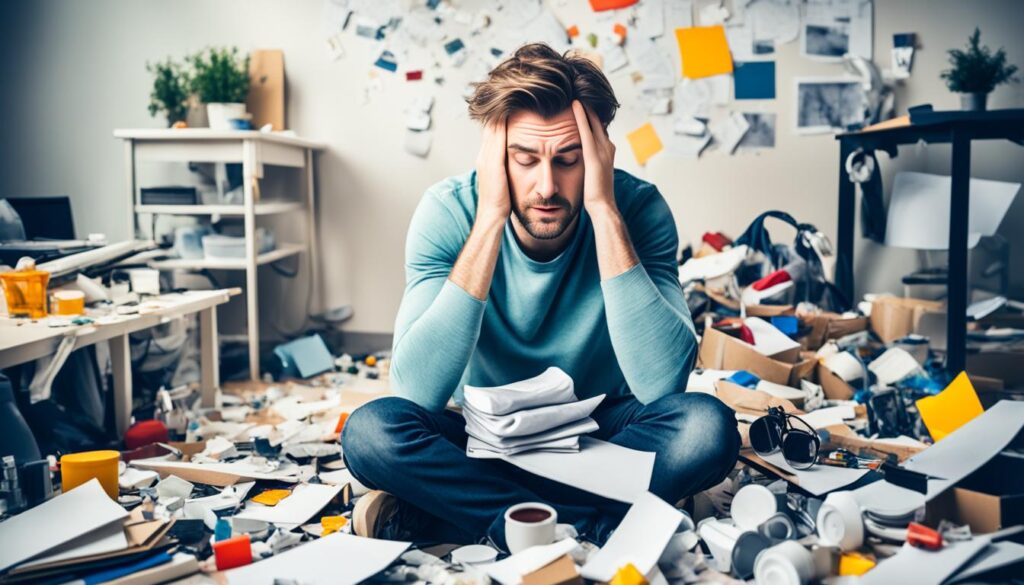
Seeking Professional Help
When dealing with depression, getting help from professionals is key. Depression is a complex issue that needs special care. Working with mental health experts gives people the support and therapies they need to feel better.
Types of Mental Health Professionals
Many mental health professionals can help with depression. These include:
- Psychiatrists – They are medical doctors who focus on mental health. They can give medication and full care.
- Psychologists – These are experts with advanced degrees in psychology. They work on treating mental health issues like depression through therapy.
- Licensed Therapists – Counselors and social workers who offer therapy to people and families facing depression and other mental health issues.
When looking for help for depression, finding the right professional is important. You might need therapy, medicine, and changes in your lifestyle. This depends on what you need and your situation.
| Mental Health Professional | Qualifications | Treatment Approaches |
|---|---|---|
| Psychiatrist | Medical doctor (M.D. or D.O.) with specialized training in the diagnosis and treatment of mental health conditions | Medication management, psychotherapy, and a holistic approach to mental health care |
| Psychologist | Holds a doctoral degree (Ph.D. or Psy.D.) in psychology, with specialized training in the assessment, diagnosis, and psychological treatment of mental health disorders | Psychotherapy, such as cognitive-behavioral therapy (CBT), interpersonal therapy (IPT), and other evidence-based approaches |
| Licensed Therapist | Holds a master’s degree in counseling, social work, or a related field, and is licensed to provide mental health services | Counseling, psychotherapy, and support services for individuals, couples, and families dealing with depression and other mental health concerns |

Knowing about the different mental health professionals and what they offer helps people make good choices for their treatment and recovery.
Psychotherapy for Depression
Depression is a complex mental health issue that needs a detailed treatment plan. Psychotherapy, or “talk therapy,” is a key part of this plan. It helps people with depression to cope, develop strategies, and recover.
There are many types of psychotherapy that help with depression. Cognitive-Behavioral Therapy (CBT) focuses on changing negative thoughts and behaviors. Interpersonal Therapy (IPT) looks at how relationships and social interactions affect depression.
These therapies help people understand their depression better. They learn how to handle symptoms and adopt healthier ways to cope. With regular sessions, patients can find out why they feel depressed, challenge negative thoughts, and improve their well-being.
Psychotherapy often goes hand in hand with other treatments like medication or lifestyle changes. It tackles the emotional and psychological sides of depression. This makes it a vital part of getting better and improving life quality.
| Type of Psychotherapy | Description |
|---|---|
| Cognitive-Behavioral Therapy (CBT) | Focuses on identifying and modifying negative thought patterns and behaviors that contribute to depression. |
| Interpersonal Therapy (IPT) | Emphasizes the role of interpersonal relationships and social interactions in the development and maintenance of depression. |
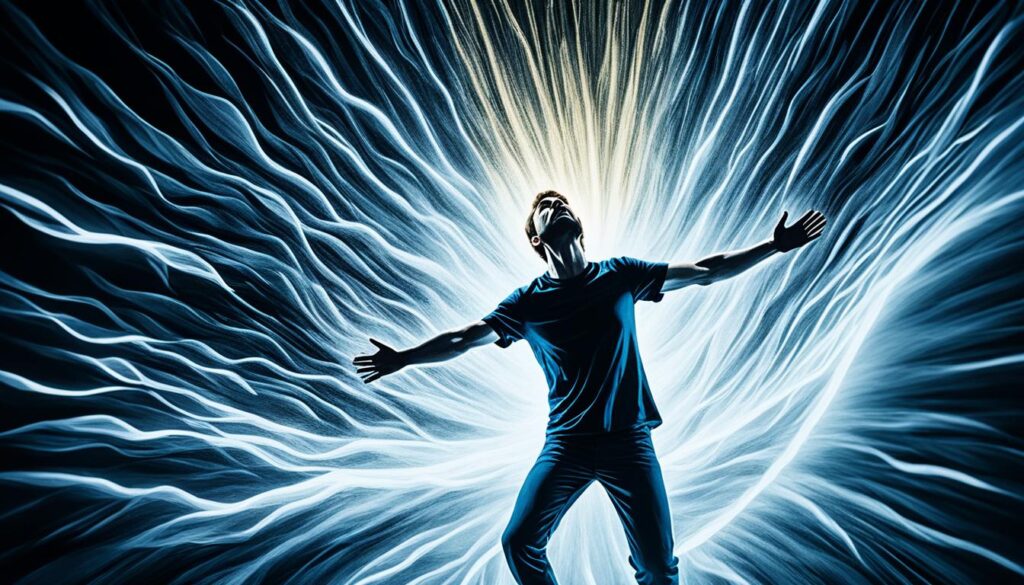
“Psychotherapy is a powerful tool in the treatment of depression, providing individuals with the support, guidance, and strategies they need to manage their symptoms and work towards recovery.”
Medication for Depression
For many people with depression, medication is a key part of their treatment. Antidepressants are often used to help manage depression symptoms. By learning about different antidepressants and their effects, people can work with their doctors to find the best option for them.
Antidepressants and Their Effects
Antidepressants help by balancing brain chemicals like serotonin, norepinephrine, and dopamine. These chemicals are important for mood and can be out of balance in people with depression. By increasing these chemicals, antidepressants can help reduce depression symptoms.
There are many types of antidepressants, each with its own way of working and side effects. Common ones include SSRIs, SNRIs, TCAs, and MAOIs. Each type can affect mood and energy differently in each person.
Finding the right antidepressant can take time and trial. It’s not the same for everyone. Working with a doctor, like a psychiatrist or primary care physician, is key to finding the right medication and watching for side effects.
| Type of Antidepressant | Mechanism of Action | Common Examples |
|---|---|---|
| Selective Serotonin Reuptake Inhibitors (SSRIs) | Increase levels of serotonin in the brain | Fluoxetine (Prozac), Sertraline (Zoloft), Paroxetine (Paxil) |
| Serotonin-Norepinephrine Reuptake Inhibitors (SNRIs) | Increase levels of serotonin and norepinephrine in the brain | Duloxetine (Cymbalta), Venlafaxine (Effexor) |
| Tricyclic Antidepressants (TCAs) | Inhibit the reuptake of serotonin, norepinephrine, and dopamine | Amitriptyline, Imipramine, Nortriptyline |
| Monoamine Oxidase Inhibitors (MAOIs) | Prevent the breakdown of neurotransmitters like serotonin, norepinephrine, and dopamine | Phenelzine, Tranylcypromine, Selegiline |
It’s important to follow your doctor’s advice when taking antidepressants. This includes taking the medication as directed and going to follow-up appointments. Finding the right treatment can take time, so be patient and keep trying.

Lifestyle Changes for Managing Depression
Managing depression often means making lifestyle changes. These changes can help ease symptoms and improve well-being. Key changes include regular exercise and eating a healthy diet.
Exercise and Physical Activity
Regular physical activity is a great way to fight depression. It releases endorphins, which make you feel better. Adding different exercises like running, lifting weights, or yoga can help a lot.
- Aim for at least 30 minutes of moderate-intensity exercise most days of the week.
- Choose activities that you enjoy, such as walking, swimming, or cycling, to make exercise more enjoyable and sustainable.
- Incorporate mindfulness-based practices like yoga or tai chi, which can help reduce stress and improve emotional regulation.
Healthy Diet and Nutrition
Eating right can also help with depression. Foods rich in omega-3s, B vitamins, magnesium, and zinc can boost your mood. Eating whole foods every day gives you the nutrients you need for your body and mind.
- Focus on consuming a balanced diet rich in fruits, vegetables, whole grains, lean proteins, and healthy fats.
- Stay hydrated by drinking plenty of water throughout the day.
- Limit or avoid processed foods, sugary drinks, and excessive alcohol consumption, as they can contribute to mood fluctuations.
By making these lifestyle changes, you can help manage your depression. Regular exercise, staying active, and eating well can greatly improve your life.
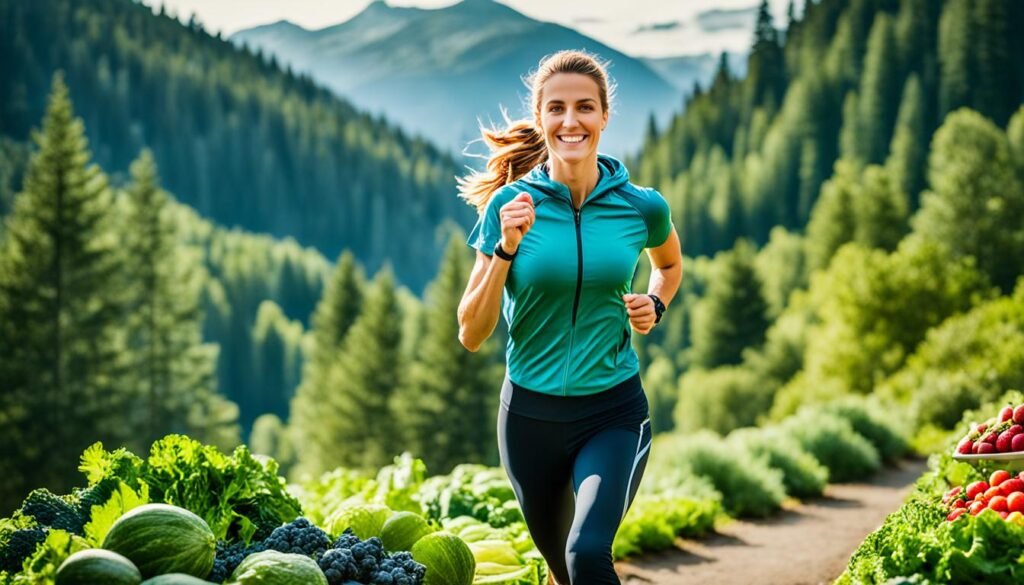
“Taking care of your body is an important part of managing depression. Regular exercise and a nutritious diet can have a significant impact on your mood and overall well-being.”
Support Systems and Self-Care
Dealing with mental health can feel tough, but having a strong support system and practicing self-care can really help. We’ll look at how support systems and self-care are key in fighting depression. These strategies can boost your well-being and make you more resilient.
Starting with a network of supportive family, friends, and peers is crucial. They offer emotional and practical help when you need it most. Whether it’s regular chats with a close friend or joining a support group, these connections give you a sense of belonging and support.
Self-care is also vital for your daily life. Mindfulness practices like meditation and deep breathing can help you handle stress and clear your mind. Regular physical activity, whether it’s walking, yoga, or dancing, can lift your mood and improve your health.
Also, eating well, getting enough sleep, and doing things you love can help manage depression. Taking charge of your self-care helps you feel in control and supports your mental health journey.
| Self-Care Strategies | Benefits |
|---|---|
| Mindfulness and Meditation | Reduces stress, improves focus, and enhances emotional regulation |
| Regular Exercise | Boosts mood, increases energy levels, and improves overall physical health |
| Healthy Eating Habits | Supports brain function, reduces inflammation, and promotes better sleep |
| Engaging in Hobbies and Leisure Activities | Fosters a sense of joy, relaxation, and personal fulfillment |
Your mental health is as important as your physical health. By building a strong support system and focusing on self-care, you can actively manage depression and improve your life quality.
“The greatest weapon against stress is our ability to choose one thought over another.” – William James
Overcoming Stigma and Misconceptions
Dealing with mental health can be tough, especially when we face stigma and wrong ideas about depression. These negative views can stop people from getting the help they need. But, by facing these wrong ideas, we can make a kinder and more understanding world for mental health.
Many think depression means someone is weak or failed. But depression is a serious medical issue that can hit anyone, no matter their background or situation. It’s a real illness that needs professional help, just like any other health problem.
Another wrong idea is that depression is just feeling sad and that people can easily get over it. This view doesn’t understand how depression deeply affects a person’s thoughts, feelings, and daily life. Depression is not just a bad mood; it’s a serious condition that needs careful care and support.
To beat these stigmas, we need to learn and share the truth. Telling accurate stories and facts can help clear up wrong ideas and increase understanding of mental health issues. Being open and honest about our or our loved ones’ experiences can also lessen the shame and loneliness that often come with depression.
Getting rid of the stigma around mental health and depression symptoms is key to helping people get the help they need. By fighting these negative views, we can build a society that values mental health support. Seeing help as a sign of strength, not weakness, is important.

“Mental health is not just the absence of mental illness, but a state of well-being in which an individual realizes their own abilities, can cope with the normal stresses of life, can work productively, and is able to make a contribution to their community.”
Depression in Special Populations
Mental health is a big concern for people of all ages. Depression can affect anyone, but some groups face special challenges. Let’s look at how depression affects children, teens, and older adults differently.
Depression in Children and Adolescents
Depression in young people is becoming more common. Unlike adults, kids and teens might show depression by being irritable, pulling away from friends, or doing poorly in school. It’s important to spot and help them early, as depression can affect their future mental health and life.
- Signs of depression in young ones include feeling sad a lot, losing interest in fun activities, sleeping or eating differently, and having trouble focusing.
- Things that might make a young person more likely to get depressed include their family history, going through tough times, being bullied, or having ongoing health issues.
- To help kids and teens with depression, doctors might use a mix of talking therapy, medicine, and helping their families too.
Depression in Older Adults
Depression can be tough for older adults, often going unnoticed or mixed up with other health problems. They might feel tired, pull away from friends, or have more body pain. It’s key to help them, as depression can really affect their health and happiness.
- Things that might make older adults more likely to feel depressed include having ongoing health issues, feeling lonely, or going through big life changes like retiring or losing a loved one.
- Helping older adults with depression might mean therapy, medicine, and making changes in their life, like getting out more and staying active.
- Older adults might find it harder to get mental health care, so it’s vital to have support that’s easy to get and fits their needs.
Knowing how depression affects different groups helps us help them better. By understanding their unique struggles, we can spot and treat depression in children, teens, and older adults more effectively.
Conclusion
Throughout this guide, we’ve looked at depression as a complex mental health issue. It affects millions of people around the world. We’ve covered the different types, causes, and symptoms of depression.
The good news is that depression can be treated. With the right support and care, people can manage their symptoms and improve their mental health. This can include seeing mental health experts, trying therapy, or making lifestyle changes.
Learning about depression symptoms, finding mental health resources, and taking action towards depression treatment helps us all. We can help reduce stigma and support those fighting depression. By doing so, we work towards a society that values everyone’s mental health.

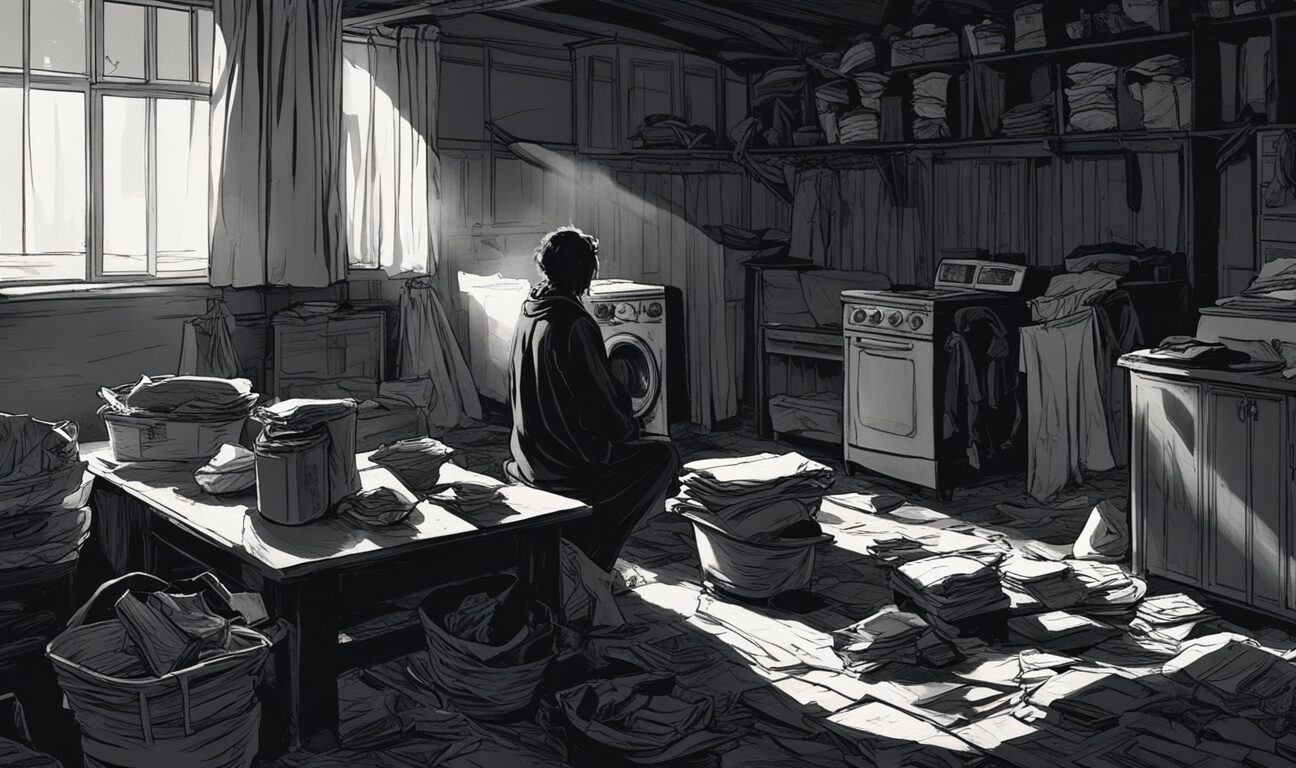



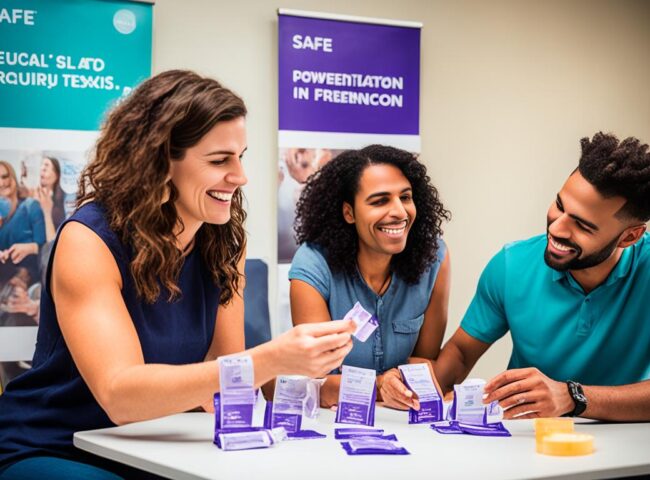
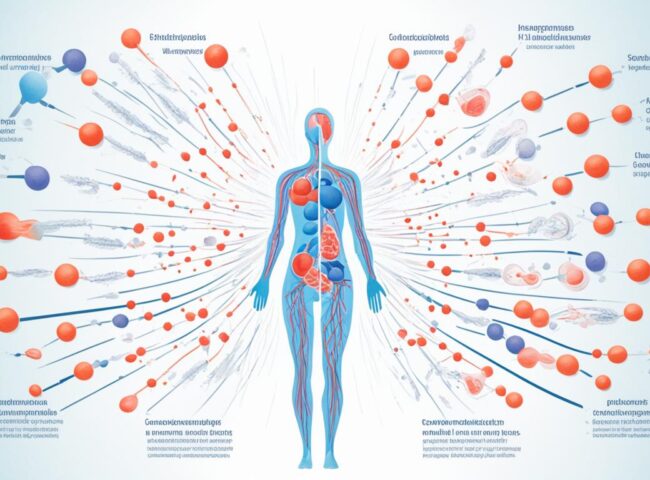
Leave feedback about this